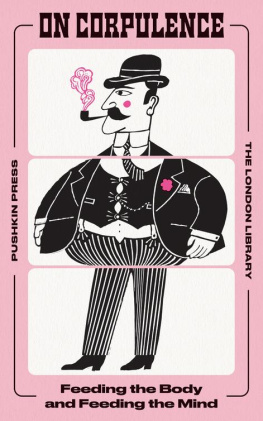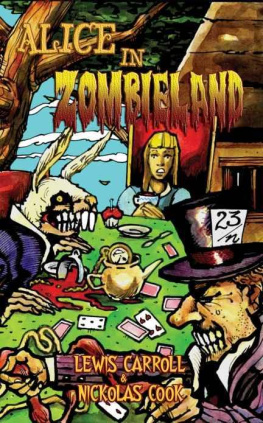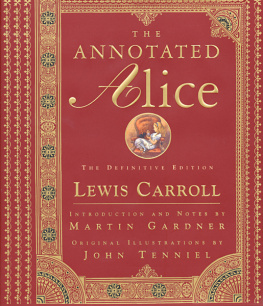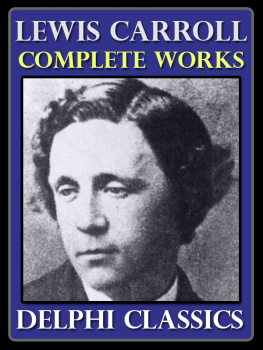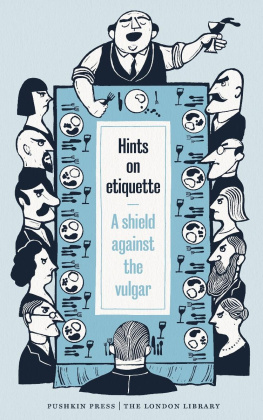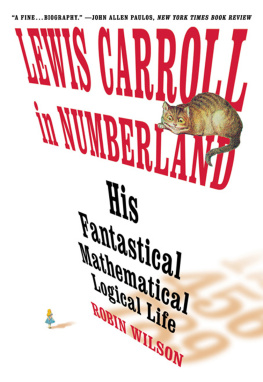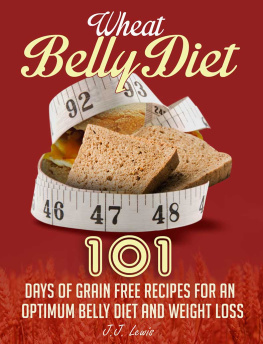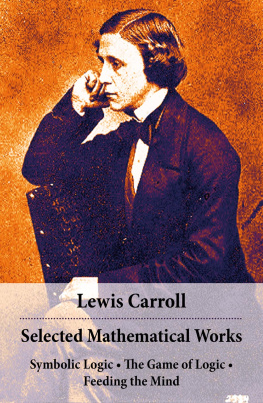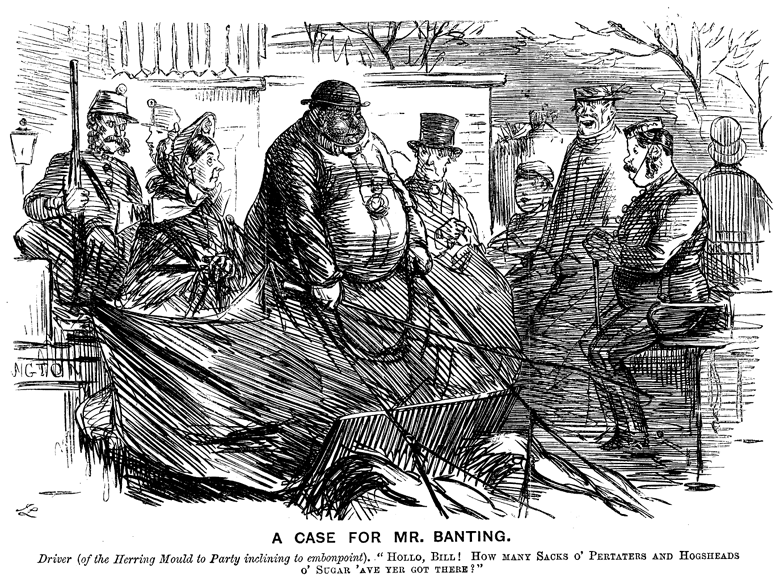Lewis Carroll - On Corpulence: Feeding the Body and Feeding the Mind
Here you can read online Lewis Carroll - On Corpulence: Feeding the Body and Feeding the Mind full text of the book (entire story) in english for free. Download pdf and epub, get meaning, cover and reviews about this ebook. year: 2017, publisher: Steerforth Press, genre: Science. Description of the work, (preface) as well as reviews are available. Best literature library LitArk.com created for fans of good reading and offers a wide selection of genres:
Romance novel
Science fiction
Adventure
Detective
Science
History
Home and family
Prose
Art
Politics
Computer
Non-fiction
Religion
Business
Children
Humor
Choose a favorite category and find really read worthwhile books. Enjoy immersion in the world of imagination, feel the emotions of the characters or learn something new for yourself, make an fascinating discovery.
- Book:On Corpulence: Feeding the Body and Feeding the Mind
- Author:
- Publisher:Steerforth Press
- Genre:
- Year:2017
- Rating:4 / 5
- Favourites:Add to favourites
- Your mark:
On Corpulence: Feeding the Body and Feeding the Mind: summary, description and annotation
We offer to read an annotation, description, summary or preface (depends on what the author of the book "On Corpulence: Feeding the Body and Feeding the Mind" wrote himself). If you haven't found the necessary information about the book — write in the comments, we will try to find it.
And with the diet for the body came a diet for the mind: for Lewis Carroll, an indiscriminate intake of fatty information was just as harmful as carbohydratesand in todays society of ever-increasing consumption of food, news and even relationships, Banting and Carroll are remarkably ahead of their time.
The books in Found on the Shelves have been chosen to give a fascinating insight into the treasures that can be found while browsing in The London Library. Now celebrating its 175th anniversary, with over seventeen miles of shelving and more than a million books, The London Library has become an unrivalled archive of the modes, manners and thoughts of each generation which has helped to form it.
From essays on dieting in the 1860s to instructions for gentlewomen on trout-fishing, from advice on the ill health caused by the modern craze of bicycling to travelogues from Norway, they are as readable and relevant today as they were more than a century agoeven if contemporary dieticians might not recommend quite such a regular intake of brandy!
Lewis Carroll: author's other books
Who wrote On Corpulence: Feeding the Body and Feeding the Mind? Find out the surname, the name of the author of the book and a list of all author's works by series.

